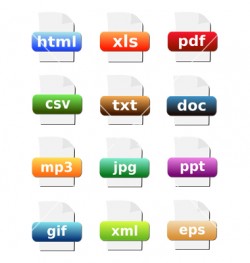For any organisation that operates internationally and thus requires translation services on an ad-hoc or regular basis, a crucial question is how to obtain high-quality translation services at the best possible price and in the shortest time possible. As the saying goes: time is money.
We have put together a few tips below to help you save both money and time on your translation projects.
Get your content translated by real experts
Our first tip for a successful cost-effective translation project would be to choose quality professional services from the start, rather than entrusting your project to non-native, unqualified or inexperienced translators.
It might be tempting to use some of the free online translation tools, or to ask your bilingual employees to complete the work, in order to save money. However even if automatic translation tools can be useful to get the gist of something, we would highly advise you against using them for anything other than private use, and not for any document that is going to be published or used in a professional context. Also, even though being bilingual is one of the prerequisites to being a translator, bilingual people are not all necessarily translators. Using unprofessional mediums to translate your material might be very expensive in terms of the damage to your brand or reputation, and it can also mean spending more money and time solving problems, for example proofreading a badly translated document or even having to order a new translation altogether.
Even if you entrust your project to a professional language provider, prices offered by different agencies can vary greatly. While high prices do not necessarily guarantee high quality, below a certain level you are unlikely to receive a good service or a translation carried out by a professional translator.
Decide what really needs to be translated and cut down your word count
The main factor that determines the cost of a translation is the word count, as most translators and agencies charge on the number of words translated and a rate per 1,000 words. A simple way to save on costs is to shorten your document by condensing sentences, summarising the content or removing any text that is not necessary, duplicated, or irrelevant to your target audience. Some texts can even be replaced by images, diagrams, or videos to cut expenditure. Besides, visual content can also be far more effective with an international audience.
Send your material in an editable format
Another very simple tip that can make a big difference to your budget and turnaround time is to provide editable text. Not only will our translators be able to overtype your file and retain your layout, but it will also save time, because they will work with a single file, rather than reading from one and typing into another. For some very complex and non-editable documents (PDFs, InDesign files, websites etc.), extracting the content can be time-consuming and add to the cost. If possible, always provide content that is ready to be used.
Translate more at once
Whenever possible, send all your material for translation at once. Very small texts usually attract minimum charges, which will be repeated if you translate two small texts one after the other. If you send all your content in one go, we will apply a rate per 1,000 words which will be more cost-effective than several minimum charges. If you send your documents separately, you might miss out on volume-based discounts. For example, we offer discounted rates for any project above 4,000 words. These discounted rates are based directly on the translators we pre-select for your project.
Finalize your document before ordering the translation
The translation process usually takes place at the very end of a project or campaign and, often, our clients have very strict time constraints. It might be tempting to order a translation before a document is finalised in order to save time. However, this usually proves to be more time-consuming and more expensive, as the translators have to rework/reword their translation several times and, effectively, translate more words. It can also lead to confusion or oversights if a document is amended several times. Ideally, we recommend you to send a file for translation once it has been finalised.
Avoid culture-bound references or stylistic devices
When drafting your document or reworking it prior to translation, we would advise you to avoid clichés, culture-specific or literary references, metaphors, or idioms that would be understood only in your own country. Translating culture-specific references or play on words will take longer, and the full meaning or spirit might be lost. Skip these risky terms and choose universal concepts and simple sentences.
Provide reference material and specify the purpose and target audience
We encourage you to provide clear instructions at the outset as to who the target audience is, what the intended aim of the translation is, and where your text will appear, along with any reference material you might have. This information will help our translators prepare a foreign version with maximum impact for your particular audience and for a specific medium. It will also reduce unnecessary questions and thereby save time.
For example if you ask us to translate a script that was transcribed from a video, it is very helpful to send the video as reference material. If your document is an ‘Operator’s manual’ for a machine or ‘Instructions of use’ for a kid’s game for instance, it is a good idea to provide us with pictures of the machine or game. If the translators need to use a specific tone or style, or if you are able to provide previous translations or glossaries, we are always happy to pass them on to our linguists.
Be available for queries
Before translating a document, our linguists read it several times. During this first step, they might notice if there is a problem in the source text, such as a confused word, typos, or inconsistencies. Their feedback can be very helpful. Our translators might also need clarifications on highly specialised terms or content that only someone with inside company knowledge or culture could explain. By providing clear and detailed replies to their queries, you will help them translate accurately and in keeping with the meaning of your text.
Buying translation services might seem like an exclusively financial investment, but this investment doesn’t have to be solely monetary. It’s also important to invest time and thoughts in the way you plan, prepare and process translation projects.
We hope this article was useful and that some of our tips help you with your future translations. If you have any questions or if you would like us to provide a quote, please do not hesitate to call us on 0800 389 6571 or by email at translation@aplin.co.uk.






